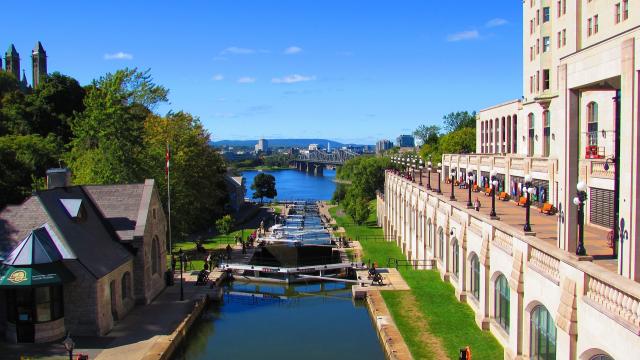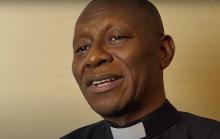For International Migrants Day, Demanya Kofi Akoussah shares his difficult experience as a minister working to immigrate to Canada.

I arrived in Ottawa on July 20, 2019, after coming through the Montreal airport with a closed work visa linked to Eglise St-Marc. When that work permit expired, the renewal application was rejected with a notice to leave the territory if I could not rectify my situation by a certain deadline because, according to the immigration authorities, certain criteria had not been fulfilled. This created a lot of difficulty for me. Éric Hébert-Daly, the United Church's Executive Minister for Ministries in French, was a big help to me, because he took on the responsibility of making contact with the provincial and federal representatives to ask for their support until the situation was resolved.
After that, I continued to work as a temporary worker, and I am currently on my third work permit, which will expire on March 24, 2023.
This situation deprives me of a lot of prerogatives. For example, my application for a permit to celebrate marriages was rejected because I have to be a permanent resident.
Furthermore, I cannot benefit from certain services offered in Ottawa for new immigrants, such as English courses, because I have a work permit, so I am temporary. Even at the bank, it was hard for them to give me credit because of my status; it was only recently that they granted me some initial credit. Due to this situation, retailers do not allow me to purchase their goods.
In terms of the financial or salary outlook, I could work to complete my partial work at St-Marc, but as I am not a resident, I cannot or I would be breaking the law, with all the related consequences. Even education and training are out of reach for me. I take courses at Atlantic School of Theology at a certain risk. Proof of training in Canada is considered an asset for immigration and increases the points in the pool to be invited to apply for permanent residency, but I cannot claim my courses, because it would be an infraction, so my CV only mentions the conference.
My age, also, no longer allows me to earn points.
This is a situation that causes me stress day and might. I do not know what to do. I am in the immigration pool waiting to receive an invitation to apply for permanent residence, and so far I have tried to collect 70 points. Immigration has decreased to 94 points to apply, so I have 24 points to go, but I do not know how to earn them, because I have no more resources.
This is one picture of reality for ministers who have immigrated to this country in hopes of serving as a minister in one of the communities of faith in The United Church of Canada. It is, sadly, a reality that has remained invisible – out of sight, out of mind. On this International Day of Migrants, please make us visible in the church.

— Demanya Kofi Akoussah, Église Unie St-Marc, Ottawa. International Migrants Day is December 18, 2022.
The views contained within these blogs are personal and do not necessarily reflect those of The United Church of Canada.